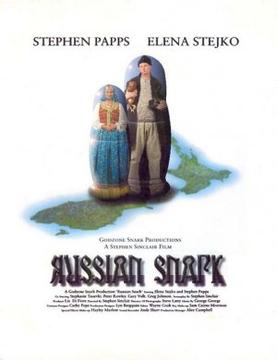Related Research Articles

Television New Zealand, more commonly referred to as TVNZ, is a television network that is broadcast throughout New Zealand and parts of the Pacific region. All of its currently-operating channels are free-to-air and commercially funded.
Three, stylised as +HR=E, is a New Zealand nationwide television channel. Launched on 26 November 1989 as TV3, it was New Zealand's first privately owned television channel. The channel currently broadcasts nationally in digital free-to-air form via the state-owned Kordia on terrestrial and satellite. Vodafone also carries the channel for their cable subscribers in Wellington and Christchurch. It previously broadcast nationally on analogue television until that was switched off on 1 December 2013.

Outrageous Fortune is a New Zealand family comedy crime drama television series, which ran from 12 July 2005 to 9 November 2010 on TV3. The series followed the lives of the career criminal West family after the matriarch, Cheryl, decided the family should go straight and abide by the law. The show was created by James Griffin and Rachel Lang and produced by South Pacific Pictures.
Blair Strang is a New Zealand Māori actor. He is most noted for playing ambulance driver Rangi Heremaia on New Zealand's longest-running soap opera, Shortland Street, between 1995 and 2001 and Brian King on Nothing Trivial from 2011 to 2014.

60 Minutes is a New Zealand newsmagazine television show. It was originally broadcast on TV3. The show began in New Zealand in 1989 based on the American programme by the same name.

TVNZ 2 is the second New Zealand television channel owned and operated by the state-owned broadcaster Television New Zealand (TVNZ). It targets a younger audience than its sister channel, TVNZ 1. TVNZ 2's line up consists of dramas, comedies, and reality TV shows. A small number are produced in New Zealand which are either of a comedic, soap opera or reality nature, with rest of the line-up taken from international catalogues.
thedownlowconcept is a production company and creative collective based in Auckland, New Zealand, specializing in producing comedy for film, radio and television. It was formed in 2002 by Jarrod Holt, Ryan Hutchings and Nigel McCulloch, and have since frequently collaborated with actor and comedian Josh Thomson. They are notable for their quirky, irreverent, and sometimes controversial comedic style.
Peter Salmon is a New Zealand film and television screenwriter and director. He has directed many TV series in both New Zealand and Australia, as well as several short films. In 2023 he directed the New Zealand drama series After the Party.

Briar Grace-Smith is a screenwriter, director, actor, and short story writer from New Zealand. She has worked as an actor and writer with the Maori theatre cooperative Te Ohu Whakaari and Maori theatre company He Ara Hou. Early plays Don't Call Me Bro and Flat Out Brown, were first performed at the Taki Rua Theatre in Wellington in 1996. Waitapu, a play written by Grace-Smith, was devised by He Ara Hou and performed by the group on the Native Earth Performing Arts tour in Canada in 1996.
The Jaquie Brown Diaries is a satirical New Zealand sitcom in which real-life television personality Jaquie Brown plays a fictionalised, over-ambitious, status-obsessed version of herself. The series was created by Gerard Johnstone, Jaquie Brown and Hayley Cunningham and premiered 25 July 2008 on TV3. The US cable television channel Logo began broadcasting the series' episodes to date 12 June 2010.

Russian Snark is a 2010 New Zealand film directed and written by Stephen Sinclair and produced by Liz DiFiore. The film features Stephen Papps, Elena Stejko, Stephanie Tauevihi and Te Waimarie Kessell. It is the story of Misha, a Russian filmmaker, and his struggles to make a movie in Godzone. It is the directorial debut of New Zealand writer Stephen Sinclair.
The 2006 Qantas Television Awards were announced on 22 November 2006 in a ceremony at the Aotea Centre in Auckland. The ceremony was hosted by television presenters Dominic Bowden and Petra Bagust. Awards were presented in news and current affairs and general television categories, as well as four awards selected by public vote.
The 2007 Qantas Television Awards were presented on Saturday 24 November, in a ceremony at the Aotea Centre in Auckland, New Zealand, celebrating the year in New Zealand television and television media. The awards were hosted by television presenters Jason Gunn and Petra Bagust, with entertainment from the Auckland Philharmonia Orchestra, Evermore, Candy Lane and the Qantas Cure Kids Choir.
The 2006 Air New Zealand Screen Awards were held on Thursday 24 August 2006 at SkyCity Theatre in Auckland, New Zealand. Previously known as the New Zealand Screen Awards, the awards were renamed when airline Air New Zealand became the naming-rights sponsor, signing for five years of sponsorship.
The 2007 Air New Zealand Screen Awards were held on Wednesday 1 August 2007 at SkyCity Theatre in Auckland, New Zealand. It was to be the final stand-alone NZ Screen Awards, as in 2008 the awards merged with the Qantas Television Awards and became the Qantas Film and Television Awards.
The 2012 New Zealand Television Awards were the new name of the New Zealand television industry awards, following the demise of the Aotearoa Film and Television Awards. The awards were held on Saturday 3 November at The Great Room of the Langham hotel in Auckland, New Zealand, with highlights screening on TV ONE on Sunday 4 November. The New Zealand Television Awards took a similar format to the previous Qantas Television Awards, honouring excellence in New Zealand television and television journalism. This was the final New Zealand television awards presentation organised by Think TV, after Television New Zealand withdrew its support in 2013.
The 2009 Qantas Film and Television Awards were held on Saturday 5 September at the Civic Theatre in Auckland, New Zealand. The craft awards were presented in a separate awards lunch at the Civic Theatre Friday 4 September. Highlights from the main awards evening were broadcast on TV3.
The 2003 New Zealand Television Awards was staged on Friday 22 August 2003 in Auckland, New Zealand. Honouring excellence in New Zealand television for the previous year, the awards ceremony was hosted by TV presenter Jason Gunn and was sponsored by the newly established government agency New Zealand Trade and Enterprise. Highlights of the event were later broadcast on TV ONE. This was to be the final awards organised by the New Zealand Academy of Film and Television Arts. No awards were held in 2004, with the New Zealand Television Broadcasters Council organising the new Qantas Television Awards in 2005.
The 2002 TV Guide NZ Television Awards were staged on Saturday 29 June 2002 in Auckland, New Zealand. Honouring excellence in New Zealand television for the previous year, the awards were sponsored by New Zealand TV Guide magazine, the final year of its eight-year period as a naming-rights sponsor of the awards. As there had been no awards in 2001, the 2002 awards also covered the 2001 awards period. The awards ceremony was not broadcast on television.
Caterina Maria De Nave was a New Zealand television and film producer, director, and media executive. She was the first woman to head a department at Television New Zealand (TVNZ) and one of the creators of New Zealand's longest-running soap, Shortland Street.
References
- ↑ "Qantas Film and Television Awards finalists". The Big Idea. Retrieved 30 October 2012.
- ↑ Sundae, Hugh (19 September 2010). "Film and Television Awards dished out". The New Zealand Herald. Retrieved 30 October 2012.
- ↑ "Winners Announced: 2010 Qantas Film and Television Craft Awards". Infonews. Retrieved 30 October 2012.
- ↑ "Qantas Film and Television Awards finalists". The Big Idea. Retrieved 30 October 2012.
- ↑ "TV Finalists for Qantas Film & TV Awards Announced". Dan News. Archived from the original on 18 February 2013. Retrieved 30 October 2012.
- ↑ "Winners 2010 Qantas Film And Television Awards". Scoop. Retrieved 30 October 2012.